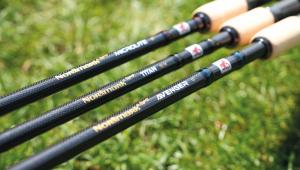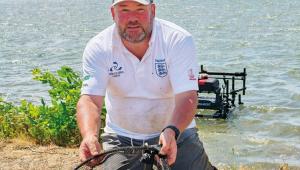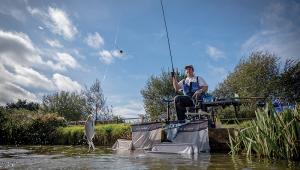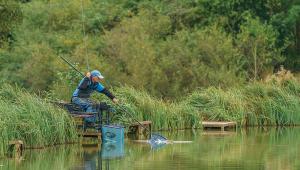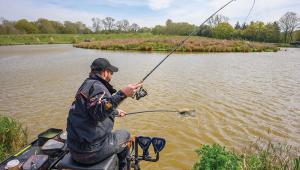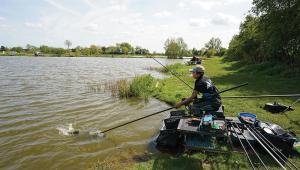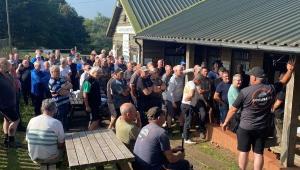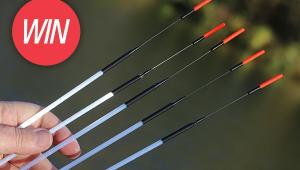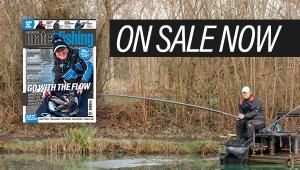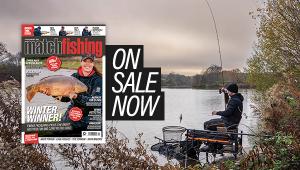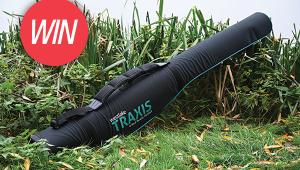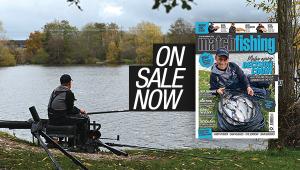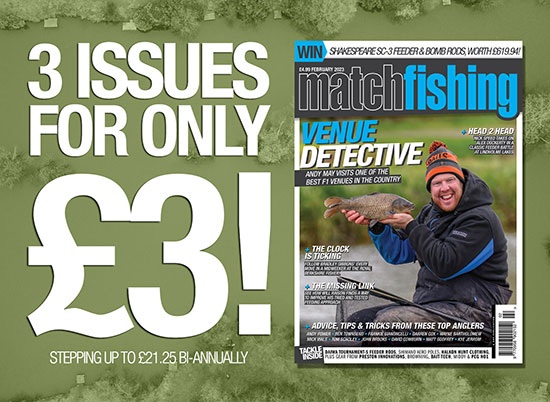Match Fishing Legends The Ivan Marks Story
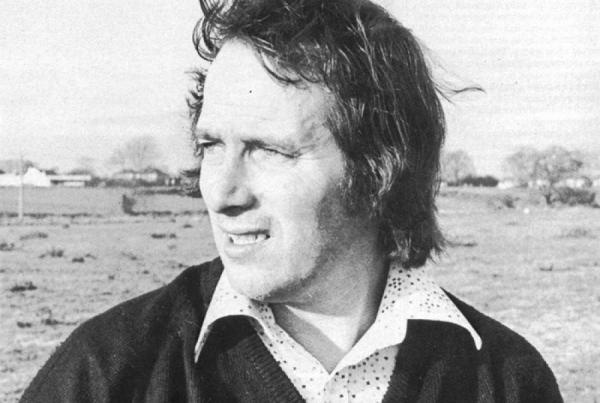
The Ivan Marks Story
First published in Match Fishing, July & August 1988
I’m often asked if I’m bitter that there isn’t more money to be made from angling, for certainly had I enjoyed the same success in golf or football that I have in angling I would be a wealthy man today. To be honest I don’t think about it, I’m 52 years old and I can honestly say it’s been a marvelous party. I’ve travelled the world, made some wonderful friends and I’m a happy man.
Angling has been very good to me, wherever I go in the country I’m made welcome and I’ve made a living for the past 20 years from doing something I adore, that I think makes me a rich man indeed.
The Early Years
Like most anglers I grew up in a fairly working-class environment, my dad was a bookie in Leicester and my early memories are of love and sunshine. Life at home was always very secure and because my dad was a bookie I could always tap him for a couple of bob (10p). Like most young boys of that time I was sports mad, bear in mind there was no TV in those days, so after school I was off up the park, cricket in the summer and football in the winter. Everybody played, sometimes there would be 20 a side. There were never any time limits on these games, we just played until we couldn’t see the ball any more.
The world was a different place then, parents didn’t have to worry about where you were. There were no muggings and there was very little traffic on the roads, very few ordinary people had a car.
I suppose I first got interested in fishing when I was about 11 years old. My dad used to keep a few greyhounds and the trainer was a chap called Alan Coles, Phil Coles’ dad, and he took me fishing for the first time. In a way it’s ironic that when Phil won the National at the age of 18, I got a lot of the credit, yet it had been his father that had taught me.
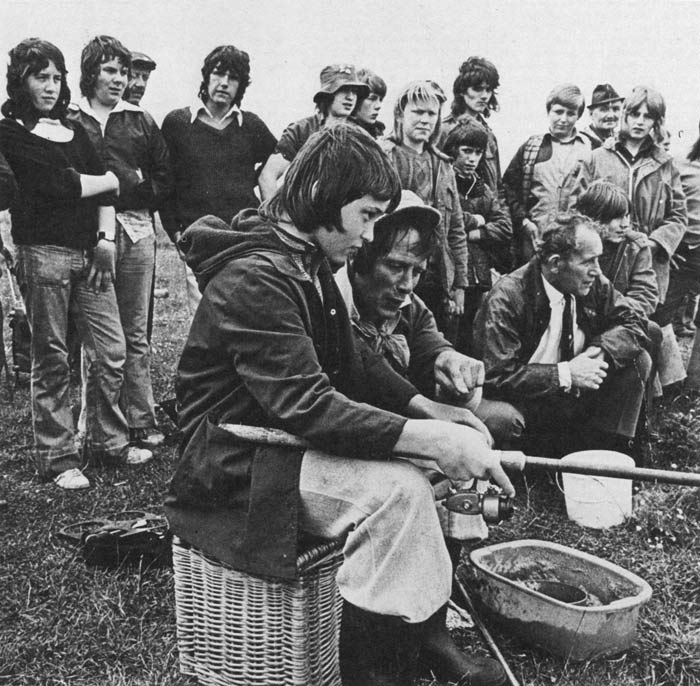
The first place I ever went to was a place called The Old Mill on the River Soar. I had an eight-piece bamboo rod and I took to fishing like a duck to water, I loved it. The thing that excited me was the mystery of not knowing what you were going to catch next.
I fished with Alan until I left school, by which time I’d become a reasonable angler. I recall telling my mother one evening that one day I would win her a trophy. I think it is in the nature of youth to make profound statements.
I started fishing club matches when I was about 13 years old, the pools in those days were two shillings and sixpence (12½p) and my dad always used to make sure I had enough money, but the older anglers would never let me go in the pools. “Keep your money in your pocket, youngster,” they used to say. Wherever we were going they used to stick me on the end of the matchlength and I always used to finish in the first three, and it used to niggle me.
Anyway, I left school and went to Bentleys in Leicester as an apprentice engineer and they had a fishing club, so I started going with them and they let me go in the pools.
In those days I was as keen as mustard, in fact I was a damn nuisance, forever asking questions, devising new floats. One has to remember it was totally different then, there was no Angling Times, in fact for all I knew angling didn’t exist outside of Leicester.
But I’d met an angler named Roland Hill and he was the best around at the time and he took me under his wing. Within a short while he and I were winning all the matches.
Roland was a great innovator and he introduced me to the self-cocking float, which was simply a knitting needle with a cork body – that was a milestone. I suppose it’s difficult for youngsters today to visualise just how basic it was, there were no fixed-spool reels, no Peter Drennan to supply your every need, we had to do it all ourselves.
Over the next two years I steadily improved and I started to become aware of other anglers outside of our area. The main man at that time was Billy Lane, he was a household name among anglers, as was the Coventry team, who were the team to beat. I don’t recall how it came about but one Sunday I was invited to fish a Coventry match at Little Paxton on the Ouse. The line-up read like a who’s who: Billy was there, both the Webb brothers, Bill Deacon… and 17-year-old Ivan Marks.
We did the draw and who should I draw next to but Billy. When we’d both tackled up I walked over to him and addressed him as Mr Lane. “What’s your name?” he asked. I told him and he said: “My name’s Bill, and do you know something Ivan, providing neither of us does anything silly, we can win from here.” I went back to my peg and I didn’t think I could beat Billy, but I thought I could be second, and in fact that’s exactly what happened.
Fishing has changed so much in the past 40 years, pegs didn’t play such a part in those days. Billy could win off most pegs, simply because he was that good and there were a lot more fish in the rivers. I remember watching him that day, he never hurried, just took his time. He was a wonderful man and a very powerful influence on me.
By that time things were starting to fall into place, quite clearly I was an intuitive angler, but I didn’t really understand what it was all about, other than I could catch fish, then at the age of 17 came the turning point, when I met Eddie Allen.
The crack club in Leicester was the Black Horse and on this particular weekend they had a match at Denver Sluice, so Roland and I entered. In those days they used to fish a three-hour match in the morning and pleasure fish in the afternoon. I won the match with 9lb of roach using my homemade knitting-needle float. The secretary of the club was Eddie Allan and he weighed me in. I suppose it’s worth mentioning here that in those days we were still fishing with split-cane rods and centrepin reels, and of course catapults were barred, so we were nowhere near as efficient as we are today.
Well after the match Eddie took me under his wing and within months of meeting he was instrumental in me winning my first open. The year was 1953.
I doubt that many readers will ever have heard of Eddie, but in those post-war years, he was the man to beat in our area. At that time two anglers stood out above the rest, Billy Lane and Benny Ashurst, but Eddie was also in that class.
Match fishing was changing and whereas previously we had all fished club and association matches more and more open matches were being staged, and Eddie never really made the transition. It was his decision, he just preferred club matches.
Having said there were more opens, I have to say that it was nothing like today with half a dozen matches to choose from every weekend. In those days an open was an occasion, the standard of club fishing was much higher then and of course the turnouts were much bigger. I can recall fishing club matches where there would be 40 plus fishing and you would have the entire Leicester National squad to beat.
One tends to think today of the club anglers as being not quite as good as the open match anglers, that wasn’t the case in 1953.
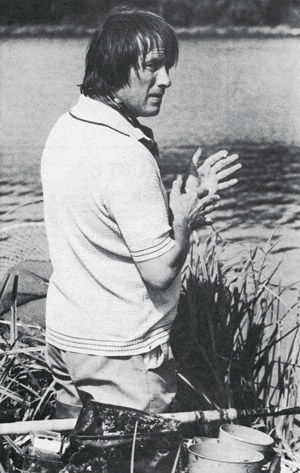 Eddie would have been in his early thirties when we first met and very much in his prime as an angler. I’ve never been quite sure what it was he saw in me, but he saw something and from that meeting at Denver Sluice we went everywhere together. So much so, in fact, that a year later when I was called up for my National Service he used to run me back to the barracks at Bicester where I was stationed, in time for first parade on Monday morning.
Eddie would have been in his early thirties when we first met and very much in his prime as an angler. I’ve never been quite sure what it was he saw in me, but he saw something and from that meeting at Denver Sluice we went everywhere together. So much so, in fact, that a year later when I was called up for my National Service he used to run me back to the barracks at Bicester where I was stationed, in time for first parade on Monday morning.
But it wasn’t all fishing in those days, I played football and despite breaking both ankles I had trials with Aston Villa and Shrewsbury. I also played cricket and had trials with both Nottinghamshire and Leicestershire. I suppose it is nice to be able to look back at that time and wonder if things might have been different if I’d been a bit more pushy, or a bit more single-minded, but none of it actually seemed important at the time, I was happy just enjoying myself.
It was a different time, there wasn’t the inducement to be a professional sportsman in those days – footballers were on fixed wages and cricketers got next to no wages at all, moreover I was in the army.
I went home every weekend. Saturday I would play football, or cricket, depending on the time of year and Sunday I would fish a match. In those days they used to run some odd competitions – I recall the Black Horse ran a competition over four matches, but the better anglers were given a points handicap. If you won any of the matches you got 100 points, less your handicap. I can’t recall what my handicap was, but I won three of the four matches and came second in the fourth, scoring 399 points out of 400, but I didn’t win. Moreover, the lad who did win had 25 points more than me, quite clearly the handicapper didn’t plan that I should win. Thankfully things like that don’t happen today.
I came out of the forces when I was 20 and I was starting to take a real interest in open matches. We’d started to fish the CIU matches and these were big events in those days and, of course, they attracted all the cracks. I’d also qualified for Leicester Amalgamation to fish the All-England on the Huntspill.
The All-England was very different from today, the Huntspill was over a 100 miles from Leicester and there weren’t any motorways, moreover very few people had cars so there was no question of visiting the venue prior to the event. The team was picked on a trials basis, I think we fished three matches, one on the Middle Level, one on the Great Ouse and one somewhere else and the top 12 anglers made up the team. It wasn’t a very complicated system.
It’s hard to explain how different attitudes were in those days, meetings weren’t at all serious – for a start none of us had ever seen the Huntspill – there was no question of phoning somebody up to find out how the river was fishing, we didn’t know anybody in Somerset; in fact half the lads hadn’t got a clue where Somerset was.
We climbed aboard the bus at some ungodly hour on the day of the match and armed with 20lb of white groundbait, half a gallon of squatts and a couple of pints of big maggots we set off for darkest Somerset. Bear in mind there were no such thing as casters then, the swingtip hadn’t been invented, it was all float fishing with centrepin reels.
Anyway, I did okay and beat the anglers around me; the team didn’t do all that well but nobody was terribly bothered and a good time was had by all.
Shortly after that I met Billy Lane, my idol, for the second time. I drew next to him in the CIU National on the Welland and to be honest I should have won the match. I borrowed one of the new casting reels from a pal, I hadn’t a clue how to use it and I fished a float called a mandit, which was like a big zoomer except it wasn’t loaded. I just kept chucking this thing out and finished third with just under 141b.
At the end Billy, who I had beaten, came up and patted me on the back and said well done. He made a very lasting impression on me, he was always a gentleman and he always had time for the up-and-coming angler. In fact Billy greatly influenced my attitude towards my fellow anglers.
Around this time something happened that was to revolutionise fishing in our part of the world. Well, two things really: first the casting reel became readily available, but more important, Jack Clayton invented the swingtip, and the effect of this combination was devastating. Suddenly a new breed of super-anglers emerged, names like Sammy Buxton, Freddie Foster and Joe Waldron began to appear regularly and these men were putting big bags of fish together.
I bought a swingtip, I didn’t know what to do with it but I went to a match on the Ten Mile Bank and I was catching bream on a fixed float in 16 feet of water when they started to run the river. Such was the pace that I couldn’t control the float.
Just then I remembered my swingtip, although I’d never used it before. I’d also bought from Jack Clayton a plastic swingtip rod, so I set it up and cast it out. Of course, because of the flow the tip stuck straight out, but I didn’t know it wasn’t supposed to do that. Suffice to say I didn’t catch anything, but every time I reeled in my maggots had been smashed and I couldn’t understand why I couldn’t see a bite. I thought it was a daft method.
After the match I stuck the rod in the rod bag and there it stayed for the next 12 months, obviously the method was a flash in the pan. Then almost a year to the day I went up to the Witham and I drew next to one of the Webb brothers from Coventry. The Webbs were very highly rated at that time and I was determined to beat this chap. Anyway, we both started on the float, I caught an eel and he caught a bream, he immediately switched to the swingtip. Well, I thought I was as good as him so I set up my swingtip rod and off I went. I’ve never related this before, I weighed in 14lb and I NEVER saw a bite. Thankfully I got better.
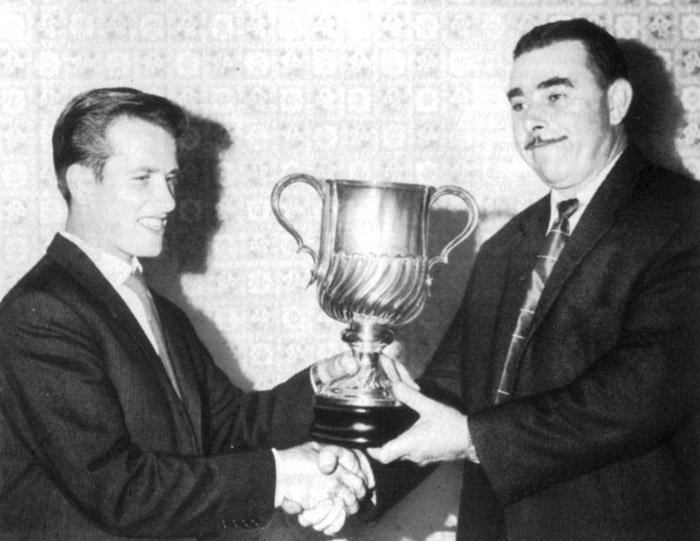
The match scene was very different then and while there weren’t nearly as many matches they were much bigger; the Witham always attracted a sell-out field and it was the norm for open matches to attract 800-plus anglers, the Fenland waters were at their peak at that time with the Great Ouse, Middle Level, Ten Mile Bank and the Welland all capable of producing between 30lb and 40lb of bream and all being complete sell-outs.
I recall fishing a match on the Witham, I was only very young – 21, maybe 22 – and I drew next to Sammy Buxton, one of the truly great anglers, and I beat him. After the match he was standing talking to a group of his mates and he called me over and said to all his pals: “This is the little lad that beat me and he’s going to be very good indeed,” and then he put his arm round me. After that, whenever I went on the Witham he always took the trouble to come and have a chat.
By then I was starting to make a bit of a name for myself; I was still playing football and cricket, but I’d more or less drifted from the club scene, I wasn’t big headed but I knew I could hold my own. That said, I had no idea what the 1960s had in store for me, for they were the golden years.
All of Ivans floats during this time were made by Gerry Woodcock who now operates at http://www.gerrysofnottingham.co.uk/
- Log in or register to post comments
